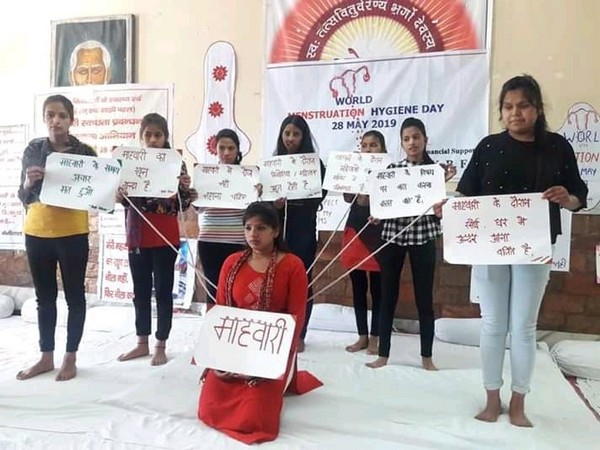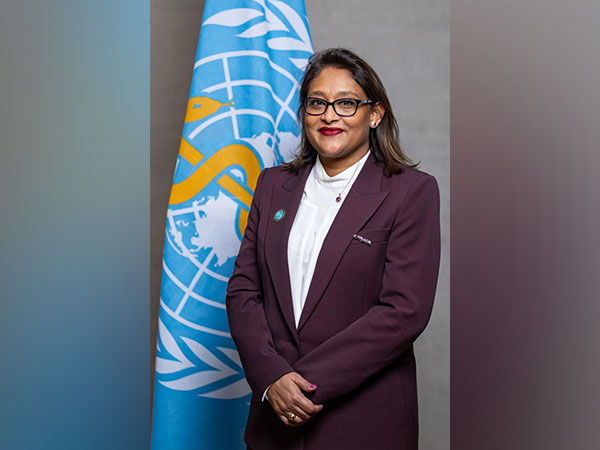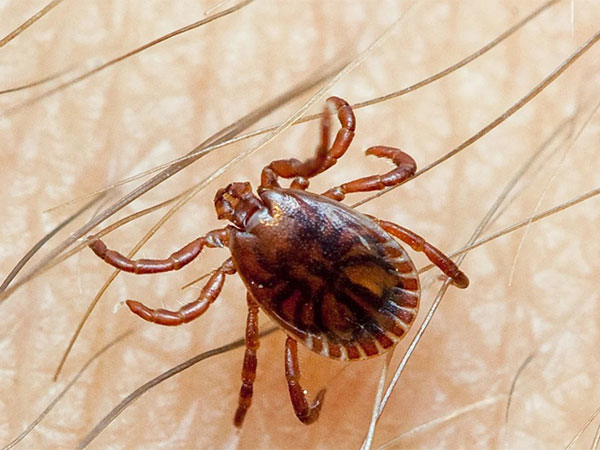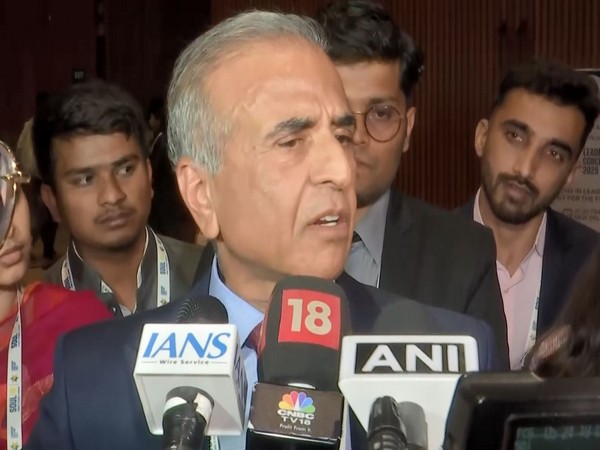
A group of women spreading awareness about menstrual hygiene
Nainital (Uttarakhand) [India], April 5 (ANI): As the bell rings, all the students rush towards their respective classrooms. Swati (name changed) – a Class 7 student, enters her class along with other girls. She is clearly uncomfortable and finds it difficult to concentrate on the lecture. As she keeps adjusting her uniform, she is scolded by her teacher for not concentrating.
The lecture gets over, students start moving towards another classroom to attend their mathematics lecture, but Swati remains seated as if someone has glued her to the chair. She has a dreadful expression on her face when her friend forcefully lifts her from the chair. The backside of her skirt has red spots seeing which Swati starts crying uncontrollably. She was then taken to the principal who, then, asks her to return home – without a word being said to her.
As she walks back home, Swati has several questions – what has happened to me? What is this red colour? Am I sick? What would I tell my mother? Why have I been sent back home without even a word from the teacher? Swati represents 71 percent of adolescent girls in India who remain unaware of menstruation till menarche – the beginning of the menstrual period. No one ever prepared her for this natural, biological process which is considered to be dirty by 70 percent of the menstruating mothers in India as per the report titled – Spot on – published by an NGO Dasra in 2014.
The report further said, “nearly 23 million girls drop out of school annually due to lack of proper menstrual hygiene management facilities, which include the availability of sanitary napkins and logical awareness of menstruation .” The issue is that society, are reluctant to talk about this natural phenomenon. In the early ’90s, television advertisements used phrases like ‘Un dino ke liye’ (to be used during those days) while promoting sanitary pads to be used during monthly menstrual periods.
Today, things have moved forward and periods are now called as periods in Indian advertisements – the way it should be. However, one of the major reasons why this issue is still met with silence is lack of awareness among majority of the population.
According to a 2011-2012 Indian Council for Medical Research’s report, only 38 percent menstruating girls had a conversation with their mothers regarding menstruation. Many mothers were themselves clueless what menstrual period was, how to explain it to their adolescent daughters and what practices must be followed for having safe periods . On the contrary, the menstruating women are subjected to restrictions which are not just unsafe but inhumane.
In northern India’s hilly state of Uttarakhand, menstruating women are treated no differently. Owing to the regressive social beliefs, they are forced to sleep in the cattle shed during their periods . They work in the field, do household chores, milk cattle but are denied entry into the kitchen, temple and any other social place considered pious. They are treated as impure, untouchables.
At a time, when they need safe and hygienic environment, nutritious food, rest and support, they are isolated by their families. They suffer not just physically but mentally as well. According to a news channel’s report, approximately 120 million menstruating adolescents in our country experience menstrual dysfunctions. “In India, around 60,000 cases of cervical cancer deaths are reported every year, two-third of which are due to poor menstrual hygiene.”
Anemia, irregular periods , reproductive tract infections along with psychological problems such as anxiety, embarrassment and shame are caused because of poor menstrual hygiene awareness. Still, there is a silence surrounding the issue! Understanding this need of breaking the silence around menstrual periods in Uttarakhand, Vimarsh – a local voluntary organization has taken the initiative of spreading awareness on issues focusing on reproductive health and rights of adolescent girls.
The organization, when it started working in the villages of Nainital district, realized that owing to their religious and social beliefs people fear and feel ashamed of talking about the menstrual cycle. Women are also part of the same school of thought as over generations they have been shamed for this natural process. They started taking it slowly and organized personal discussion with women and girls over several months.
Today, they have brought together adolescent girls from 40 villages to create awareness on the issue of menstrual hygiene management. As part of this project, they work along with different communities, administration, and local leaders.
They have taken steps to ensure that everyone involved has basic information about menstruation, its importance, need to maintain cleanliness, need of nutritious food, access to menstrual hygiene products and most importantly – the need to respect menstruating women and their health.
To make sure that women while following safe practices do not harm the environment – they have trained them to make re-usable pads at home using a cotton cloth piece and have also taught them the proper ways of using it to avoid infection. Menstrual_Hygiene_Management_-_Upasana_Tuleda_Uttarakhand_270320_2.jpg”
Understanding the need of proper sanitation facilities at education institutes like schools and the impact the absence of toilets can have on menstruating adolescent girls, Vimarsh as an organization identified schools where there were no toilets and ensured that school administration takes needful action to address the issue.
They have also been advised to provide free sanitary pads to the girls when required. Efforts have started paying off for Vimarsh as the first step of creating awareness has been taken. The dream is to make life healthier for young girls and women who are often left behind by our patriarchal society.
This, surely, is a long road that will require persistent efforts from everyone in our society. The views expressed in the above article are that of Upasana Tuleda of Charkha Development Communication Network. (ANI)






